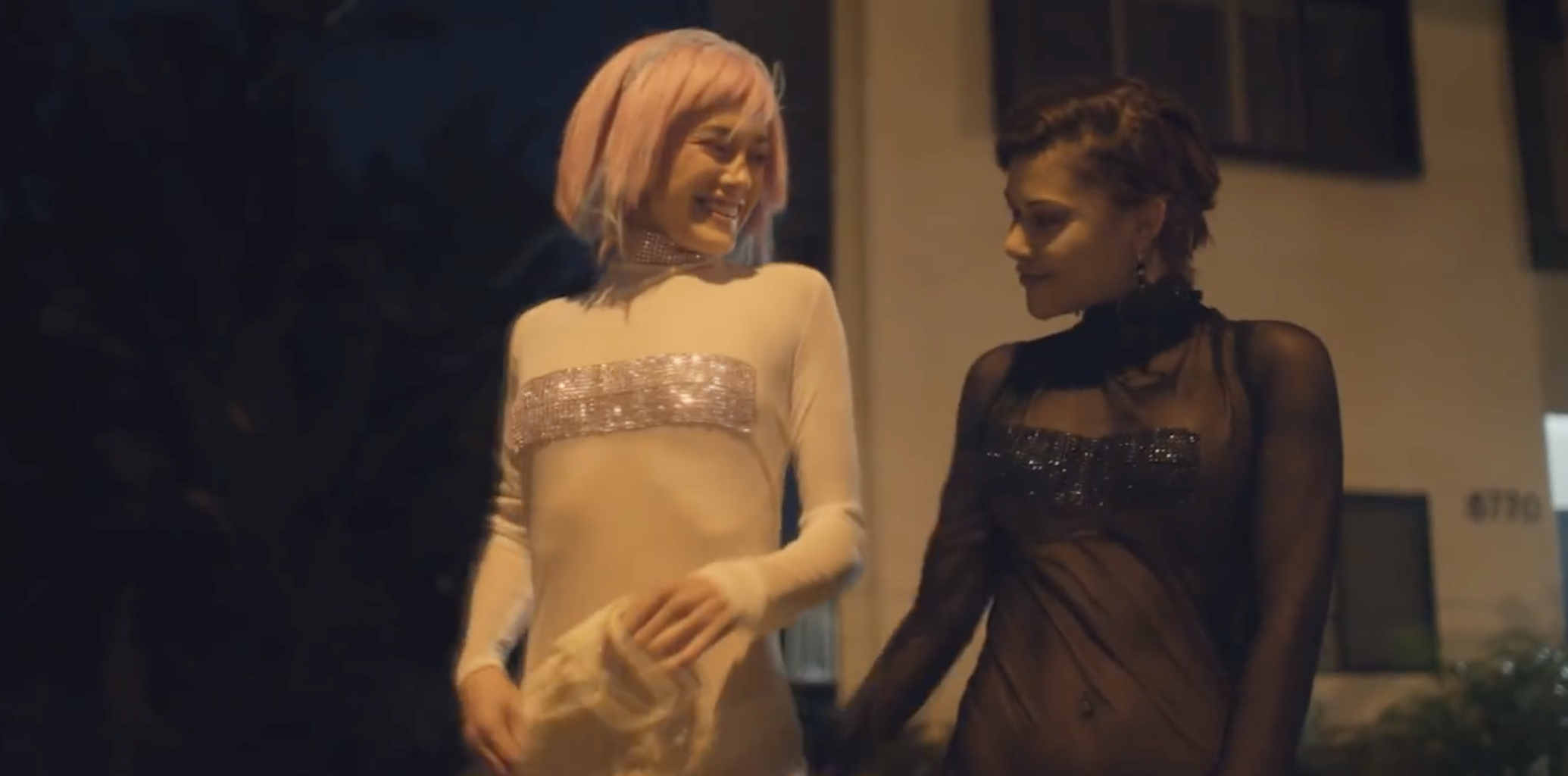When a film opens in a way that immediately, if briefly, introduces you to an endearingly quirky main character, while also highlighting the director’s sharp eye and unique style, you know you’re in for a treat. But when you find that this short scene is capped off with a jaw-dropping wide shot of the amber-tinted dusk horizon kissing the ocean, whose radiance is reminiscent of Terrence Malick’s Days of Heaven, you know you spoke too soon and with insufficient praise.
Independent filmmaker Amara Cash imparted such a sense with her recent feature-length directorial debut Daddy Issues, which tells the story of Maya (Madison Lawlor), a queer youth who meets and falls in love with her online crush Jasmine (Montana Manning). However, this relationship becomes increasingly complicated once Maya discovers that Jasmine not only sees another man, but that Maya has a troubling connection to him.
Last week I interviewed Canadian actor and Toronto native Andrew Pifko, who plays said man, and he told me “the beautiful thing about…[Daddy Issues] is that it did not fit neatly into boxes,” a sentiment with which I am inclined to agree. Cash and her screenwriter, Alex Bloom, do work within particular frameworks of the love triangle drama, and while any screenplay is inescapably derivative of something that came before, they nonetheless manage navigate the genre’s clichéd baggage, blazing their own narrative trails in the process.
However, this does come with the occasional line of stunted dialogue, as well as missteps in the depiction of some secondary characters…or more specifically Maya’s mother and stepfather, who feel like inflated caricatures in comparison to the more three-dimensional leads.
In fact, the strength of the leads alone is enough for Daddy Issues to be considered a successful piece of dramatic cinema.
Madison Lawlor’s natural, seemingly effortless performance as Maya situates her as the film’s most relatable character, so that each flutter and break of her heart is conveyed with grounded emotion. What I enjoyed most about Cash and Bloom’s depiction of Maya is that she is not some naïve 19-year-old who finds herself in some sexual awakening. On the contrary, Maya has no qualms about her sexuality, which liberates the narrative to explore the dynamics of sexuality and quandaries of love in a more intimate manner.
Of course none of this would be possible without a love interest worthy of her (and our) affections, but Montana Manning’s vivacious, deceivingly complex portrayal of the gorgeous Jasmine more than justifies not just Maya’s love for her character, but the audience’s too.
Andrew Pifko’s Simon, then, is likely the most broken of the three, making for what is arguably the difficult of the three characters on paper. Thankfully, Pifko thrives in balancing Simon’s personal issues with his own sexual deviance and desire to do right by others. Simon makes for an intriguingly visceral character, though you are left longing that Cash and Bloom had dedicated a little more time to fleshing out his undoubtedly troubled backstory.
Each and every aspect of Daddy Issues then is bolstered by Cash’s distinctive directorial style, where her visuals, editing, music, cinematography and use of yo-yoing frame speed have all the markings of an auteur. The results pop off the screen; if her montages are audiovisual candy, then her more intimate scenes are thematically rich dark chocolate.
Daddy Issues is a film comprising of individual components that manage to add up to its whole, only it doesn’t quite exceed the sum of its own parts. But that’s okay. Despite minor problems that go beyond the paternal-related ones of its own characters, Daddy Issues is still a beautifully shot drama that resists the urge to cash in on its depiction of sexual fluidity and promiscuity, opting instead to focus on the lives of each of its leads in emotionally resonant ways.
7/10
![]()
![]()
![]()
![]()
![]()
![]()
![]()
![]()
![]()
![]()

